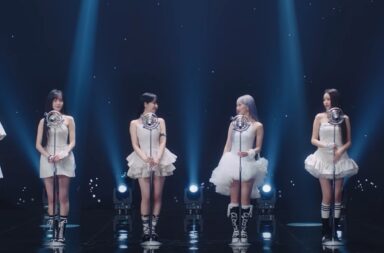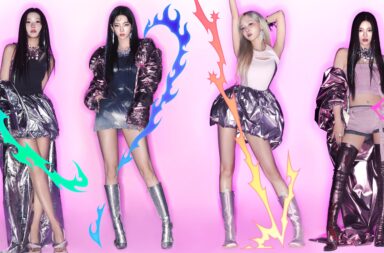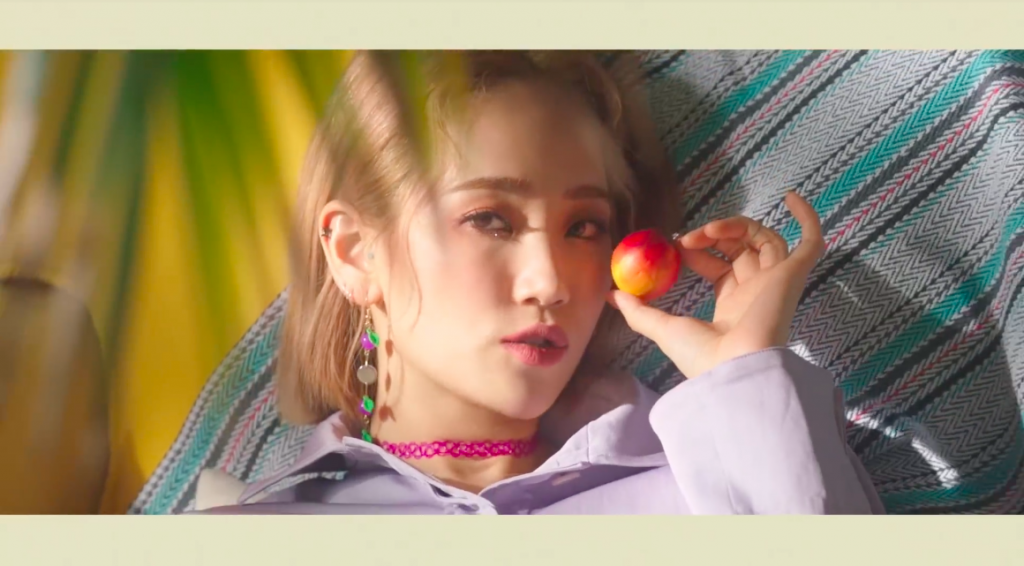
Sweet or sour, soft or firm, fruits come in all shapes and kinds. Packed with vitamins and fiber, they are the definition of a perfect snack: healthy, practical, and delicious. On top of it all, they are aesthetically beautiful, and many hold extensive cultural significance around the world, as well as inspiring all forms of art.
On this month’s Music & Lyrics, we take a look at some of the ways that K-pop and fruits have blended into one tasty smoothie. Starting off with a literal approach to the theme, the comical “Banana Allergy Monkey,” by Oh My Girl Banhana, narrates the sad story of an allergic monkey:
Just thinking about it makes me laugh
A monkey that can’t eat a single bite of a banana?
Even I think that’s so pathetic
Don’t look at me like that
I don’t need your pity
I know you’re covering your mouth and laughing at me
However, the monkey discovers that drinking banana milk works out just fine, and professes love for the yellow fruit with newfound happiness. In another literal take, Ha:tfelt asks in “Pluhmm”:
Do you like plums?
What’s the name of your dog?
What time do you usually go to sleep?
Have you ever spent the night with someone you just met?
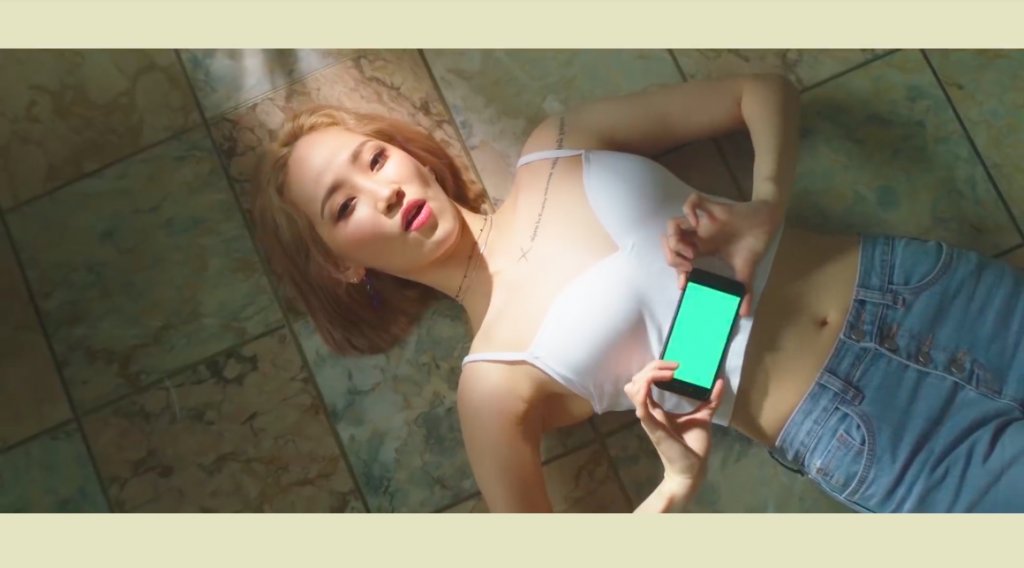
It might seem like a harmless conversation topic, but the stylization of the word in the title and the sensual MV reveal that the plum was chosen for its tempting symbolism, as Ha:tfelt subtly seduces her love interest. The plum serves as an introduction to her real intentions, which should slowly be revealed as the conversation progresses.
Moving on to more connotative meanings, fruits are often used to compare the qualities of subjects and objects. In Hyomin’s solo “Mango,” the singer makes use of this technique with clever wordplay:
I may seem aromatic and soft
But I’m a tart and sour mango
A temperamental mango
I may seem kind and weak
But I’m a special mango
I can make you man, man, go
By comparing herself to a mango that is sweet on the outside but sour on the inside, she affirms her agency in a relationship where the man tried to control her personality. Despite her soft exterior, Hyomin states that she’s not afraid to make a “man go” away if he doesn’t respect her.
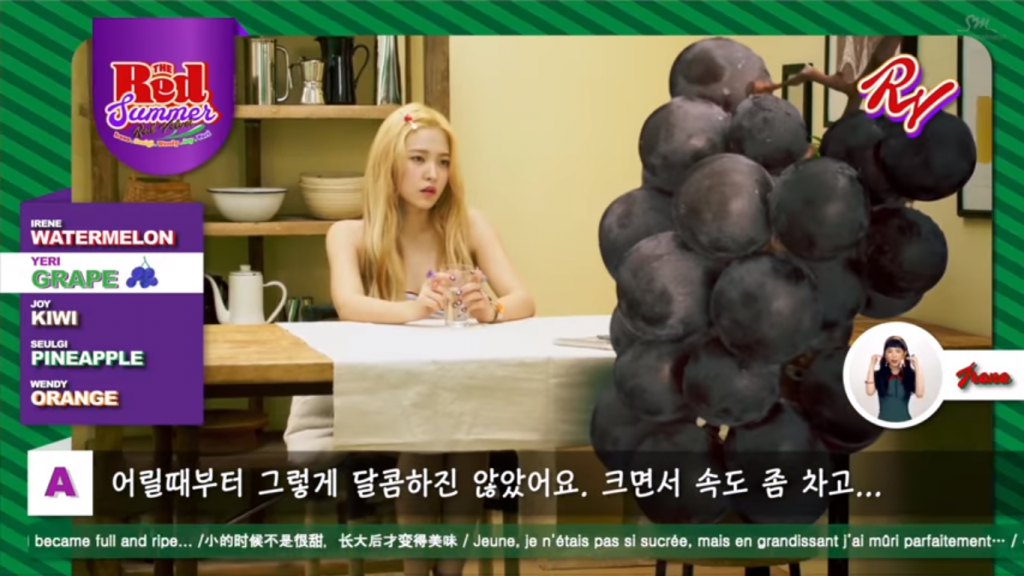
Red Velvet, who have plenty of food-themed lyrics to match their name, describe their singularity as a juicy strawberry in “Red Flavor”:
Curious about the red flavor, honey?
The strawberry flavor that melts
More as you bite
Look for it at your corner candy shop, baby
My favorite is the summer flavor
The group uses a known flavor (strawberry) to anchor other, open definitions (red, summer) of what makes them special, therefore enticing the listener to know more.
When it comes to physical features compared to fruits, they often run on the sexual side (peaches and bananas, anyone?). Twice take a creative way out of that trend, comparing countless seeds to a face full of freckles in their b-side “Strawberry”:
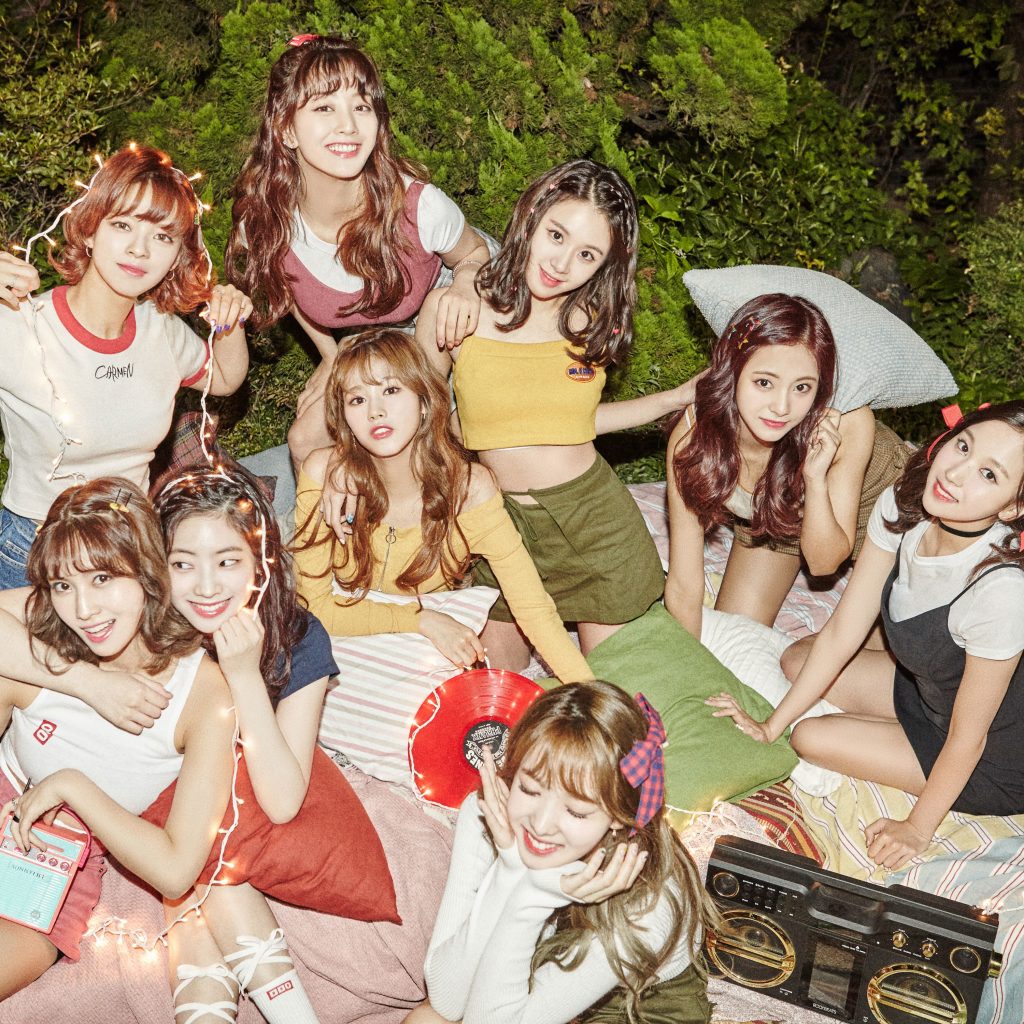
Like a strawberry, you have a lot of freckles
So, like a strawberry, you’re sweet and sour, so cute
So sweet, no need to add any sugar
The way you are is
Oh so sweet
From the examples above, it’s clear that K-pop is full of fruity motives, but one reigns supreme among them all. If you guessed apples, you’re correct — the forbidden fruit has inspired a myriad of artists, often representing an irresistible temptation. A recent example is GFriend’s latest single, “Apple,” where the fruit itself isn’t mentioned in the lyrics, but all the verses allude to its enticing symbolism:
Oh no, this sweet scent
Bright ruby drops draw me in
Oh no, lead me more into temptation
Yes, your scent, your color
Infuse me with pleasure
Ga-in made similar use of these meanings in her own “Apple”, and Fiestar compared their love to a hot, sweet “Apple Pie,” just to name a few other examples. Cherries are another fruit often used to describe temptation, like in Loona’s Choerry “Love Cherry Motion,” and Chungha’s “Cherry Kisses.”
In case you haven’t noticed, all the artists in this post are women: this was and wasn’t a deliberate decision. Upon research, the examples of fruit-related songs from male acts were scarce — NCT 127’s “Cherry Bomb” (which isn’t exactly about the fruit), TXT’s “Blue Orangeade,” Nu’est’s “Cherry” — therefore, it was an opportunity to analyze the ways in which K-pop women incorporate fruits in their work. As fruits are often associated with femininity and fecundity, the disparity between genders might be explained by that. Overall, it’s certain that, no matter how or by whom they are used, fruits add unique flavor to the K-pop landscape.
(Youtube [1], [2]. Images via SM Entertainment, Amoeba Culture, JYP Entertainment. Lyrics via Color Coded Lyrics.)
